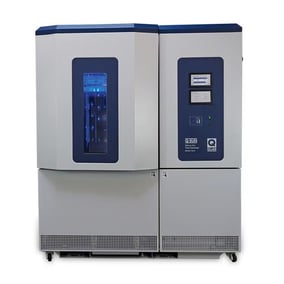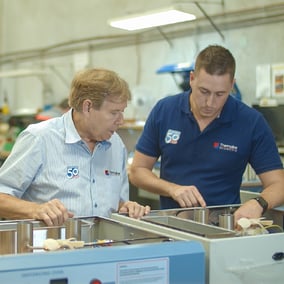The safe storage of blood and blood components is paramount in healthcare. The Blood Book, a guide for Australian healthcare professionals, emphasises the critical role of maintaining specific temperatures for different blood products. Let's delve into the Blood Book's recommendations and how Thermoline's blood storage refrigerators and fresh frozen plasma (FFP) freezers support these crucial requirements.
Red Blood Cell Storage
The Blood Book states that red blood cells must be stored in a monitored blood refrigerator or validated shipper, never in a domestic or ward refrigerator. Thermoline's blood storage refrigerators are designed specifically for this purpose, offering precise temperature control and monitoring systems to ensure the integrity of red blood cells. The Blood Book's "30-minute rule" highlights the importance of minimising the time red blood cells are outside controlled storage. Thermoline refrigerators, with their reliable temperature control, help healthcare professionals adhere to this rule, reducing wastage and ensuring patient safety.
Platelet Storage
Platelets, according to the Blood Book, require storage at room temperature (20-24°C) with continuous agitation. Refrigeration is detrimental to platelet function. Thermoline's platelet incubators and agitators provide the ideal environment for platelet storage, maintaining the correct temperature and agitation to preserve their viability and functionality.
Fresh Frozen Plasma (FFP) Storage
FFP must be stored at -25°C or below. The Blood Book notes that once thawed, FFP (now called extended life plasma or ELP) can be stored in a monitored blood fridge for up to five days. Thermoline's FFP freezers offer secure, long-term storage at the required ultra-low temperatures. Additionally, their blood refrigerators provide the controlled environment needed for storing thawed FFP/ELP, ensuring its safe use within the specified timeframe.
The Critical Role of Temperature Monitoring
The Blood Book underscores the importance of temperature monitoring and alarms in blood storage. Thermoline's blood storage equipment incorporates advanced monitoring systems with alarms to alert staff of any temperature deviations, safeguarding the stored blood products.
Conclusion
Proper blood storage is not just a recommendation; it's a critical aspect of patient safety. By adhering to the guidelines in the Blood Book and utilising reliable equipment like Thermoline's blood storage refrigerators and FFP freezers, healthcare professionals can ensure the integrity of blood products, minimise wastage, and ultimately provide the best possible care to their patients.
Refer to the Blood Book: Australian Blood Administration Handbook at LifeBlood for more information.






